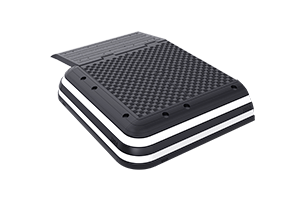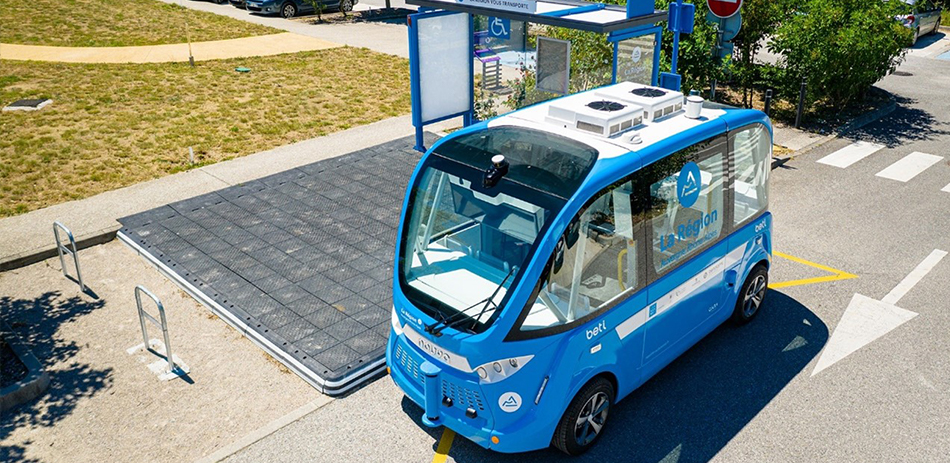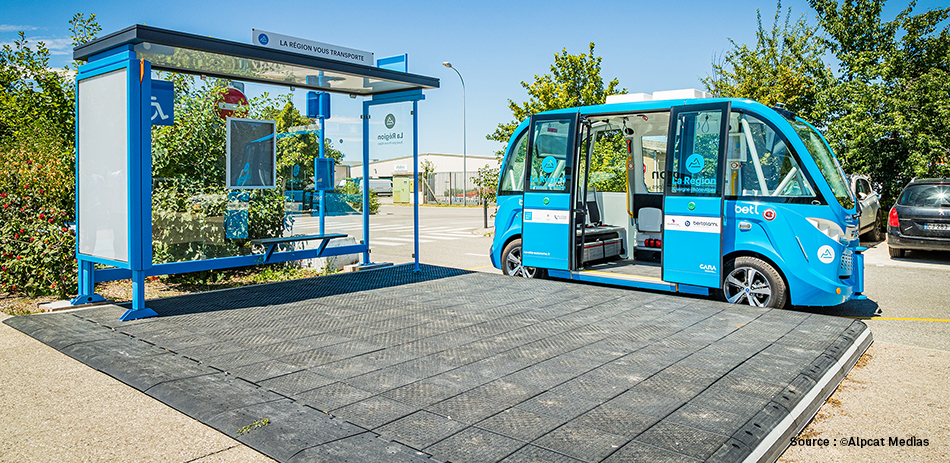| PROJECT NAME: | Autonomous shuttle in rural areas |
| CITY: | Eurre, Drôme (France) |
| LOCATION: | Allée des 3 Becs |
| OPENING DATE: | August 2020 |
In recent years, experiments with autonomous shuttles have been conducted around the world. In general, these experiences have taken place in an urban environment, in a specific site or, in a very marked environment, because these vehicles need reference points to be located in space. These small, driverless buses are usually tested to serve office areas, ski resorts or, even short trips in the city center. But they had not yet been tested in rural areas, where the configuration changes with the seasons and there are few fixed reference points. The 100% electric autonomous ferry Navya, deployed by the company Bertolami and funded by the Auvergne Rhône-Alpes region. It has been traveling in Drôme on a road open to traffic since September this year, where it will be tested for several months. This experience is a European first.
Need and project objectives.
The route chosen for this experiment until now was not served by public transport. However, it links two local centers of interest, the Crest SNCF train station and the Ecosite Val de Drôme in the municipality of Eurre, and serves many economic and leisure activities. The concern of the operators, in the absence of bus stops, was to be able to guarantee the accessibility of the shuttle to passengers at both ends of the route. But as an experiment that will last only five months, it was too costly and not very virtuous in environmental terms, creating permanent bus stops and possibly destroying them at the end of the pilot project.
The proposed solution.

- A very variable environment according to the term: At the Crest station, the platform was installed as an extension of the existing sidewalk, while at Eurre two parking spaces were occupied to create a stop, which also included a bus shelter.
- A period of operation that can change: the platforms will ensure the accessibility to the autonomous shuttle during the duration of the experiment (5 months), but can be maintained if the experiment is prolonged. In fact, the modules that compose them are made of 100% recycled PVC, a material chosen for its durability.
- A limited budget for the conditioning of stops, within the reach of small communities, guaranteeing a perfect adaptation to the specificities of each terminal.
At ZICLA we are proud to participate in this experiment and to face the challenges of tomorrow’s mobility, which require in particular the development of solutions for sparsely populated areas.





